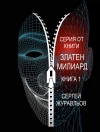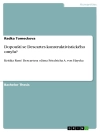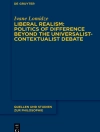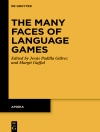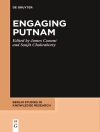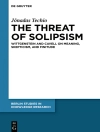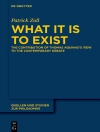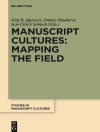This book compares the historical development of ideas about language in two major traditions of linguistic scholarship from either end of Eurasia – the Graeco-Roman and the Sinitic – as well as their interaction in the modern era. It locates the emergence of language analysis in the development of writing systems, and examines the cultural and political functions fulfilled by traditional language scholarship. Moving into the modern period and focusing specifically on the study of “grammar” in the sense of morph syntax/ lexico grammar, it traces the transformation of “traditional” Latin grammar from the viewpoint of its adaptation to Chinese, and discusses the development of key concepts used to characterize and analyze grammatical patterns.
Tabla de materias
Acknowledgments.- Briefing Key issues and organisational features of this book.- Prelude Framing the problem of language and meaning.- Part I Traditions of language study: Graeco-Roman vis-à-vis Sinitic.- Chapter 1 Language, writing and metaphors for language.- Snapshot 1 Dialectic; Analogy v. anomaly.- Chapter 2 Language in education and the foundations of linguistic scholarship.- Snapshot 2 Ordering of words; Language as manifestation of the way.- Chapter 3 The discovery of language history.- Snapshot 3 Characters and order of universe; Grammatical form as expression of mind.- Chapter 4 From philology to linguistics.- Interlude Establishing a modern paradigm.- Part II The making of modern grammatics: developing tools for the analysis of wording.- Chapter 5 From “(single) articulation” to “double articulation”: meaning ↔ wording ↔ sound.- Chapter 6 “Parts of speech” and “word classes”: defining basic categories for grammatical analysis.- Chapter 7 “Word grammar” and “clause grammar”: separating morphological from syntactic patterning.- Chapter 8 Syntagmatic and paradigmatic relations: structure and system.- Postlude The long 20th century of linguistics.- Debriefing The history of linguistics and the study of language.- References.
Sobre el autor
Edward Mc Donald gained his BA(Hons) from the University of Sydney in 1988, his MA from Peking University in 1992, and his Ph D from Macquarie University in 1999, with theses on the clause and verbal group grammar of modern Chinese. He has taught linguistics, Chinese language, translation, semiotics, and music at universities in Australia, China, Singapore, and New Zealand. His recent research interests include the application of systemic functional theory to a range of languages including modern Chinese and Scottish Gaelic (
Meaningful Arrangement: exploring the syntactic description of texts, Equinox 2008); Chinese language teaching and the hybrid concept of ‘sinophone’ (
Learning Chinese, Turning Chinese: challenges to becoming sinophone in a globalised world, Routledge 2011).


